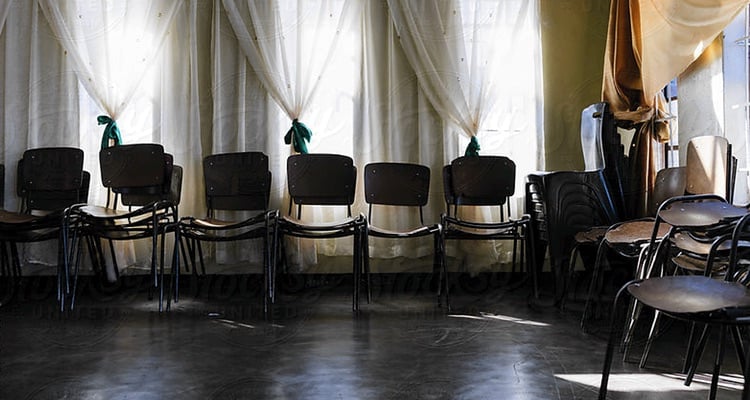
The United Kingdom’s biggest and most beautiful buildings are its churches. But they are also its emptiest. Recent church reports indicate more than a quarter of churches have fewer than 20 worshippers on a Sunday, and in rural areas this slips to fewer than 10. Left alone, these buildings may slowly start to shut, and then rot. To avoid this we need a communal solution.
Survival of the most adaptable
The obvious answer is steadily to convert church buildings to host communal activities that are needed locally, but are currently vanishing from the map. Though many people are not religious, and do not use a church for religious purposes, 85% of the public visits a church every year. We consider them museums, art galleries, concert halls and retreats for peace.
Far from shutting to become shops or warehouses, many churches should hold a wide range of important cultural organisations and activities. This diversification is already being pioneered. Some churches already host village shops, farmers markets, food banks, post offices and Wi-Fi cafes. They must make the most of their most valuable resource. An empty room is a waste, and can be put to good use for both the local community and the church finances. By hiring out rooms to local organisations the church can embed itself more in the local community and become an important contributor to the cost of running the church.
Many churches we have spoken to feel that the hiring out of their facilities has been an essential part of their growth and development as a church. Some have used the funds merely to stay afloat of their finances, others have been so successful they have been able to use this money to fund many additional projects they could otherwise not afford.
The Revd Jeffrey Risbridger, from St John’s Waterloo, stresses that the church must engage with the ordinariness of everyday life, and says “Anything that draws people into a church building (especially in these days where so few attend or fully understand church) has to be welcomed”. He is not alone in thinking this.
A compromise too far?
However, some claim this takes away from the purpose of the church building - religion. They feel that whilst churches should recover their status as the community’s social and cultural focus, they must also retain their aura of religious exclusivity. If the church gives away too much time and attention to other activities, it might cause people forget the purpose of the church altogether rather than bringing them back. Time spent giving priority to outside activities may detract from time that could be given to worship, or extra services.
Furthermore, the experience of a minority of churches has been negative with regards to room and building hire. There is no simple rule for deciding who should be allowed to use church halls and this has led to some difficult situations and a small number of churches being brought into disrepute.
Another argument is that it is unfair to expect men and women trained for one profession to perform a quite different one; many who work for the church do so as volunteers and expect to help with church and biblical matters. It is quite different to ask them to act as charity administrators, building surveyors, social workers and postmasters. Having said this, Church Management Systems are a big help in this area. By using a Church Management System there is no worry about duplication of administrative tasks or complicated booking systems, forget about issues with coordinating your availability. At ChurchDesk your online calendar will update automatically, pulling data from your internal system. This means your website visitors will be looking at real time information and neither you or them will have to go through the hassle of multiple emails or phone calls. You can even create a web form so they can book right there and then!

A delicate, but achievable balance
Whilst it must be acknowledged that this is a difficult balancing act, this opportunity must not be ignored. It also must not be taken lightly. To avoid the problems previously mentioned churches should explore the origin, history and purpose of the groups they allow to hire rooms, and the PCC should obtain clarity on the exact use of the space they let out (e.g. worship, education, community service etc.).
If caution is taken the church should begin to build beautiful new links between itself and its community. Without this, we risk the loss of these buildings and places of worship - and surely whatever your opinion, a shared place of worship is better than no place at all?
